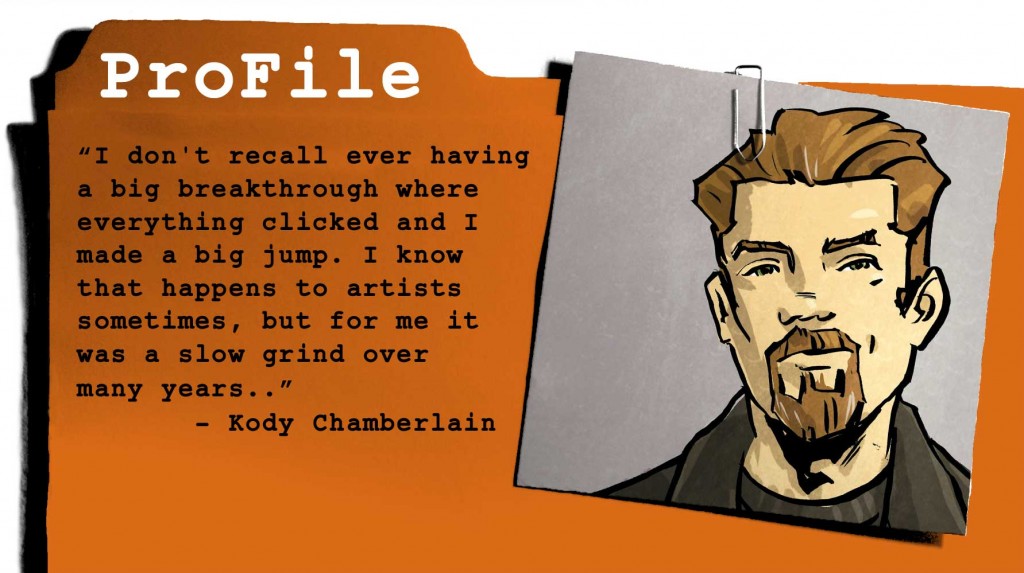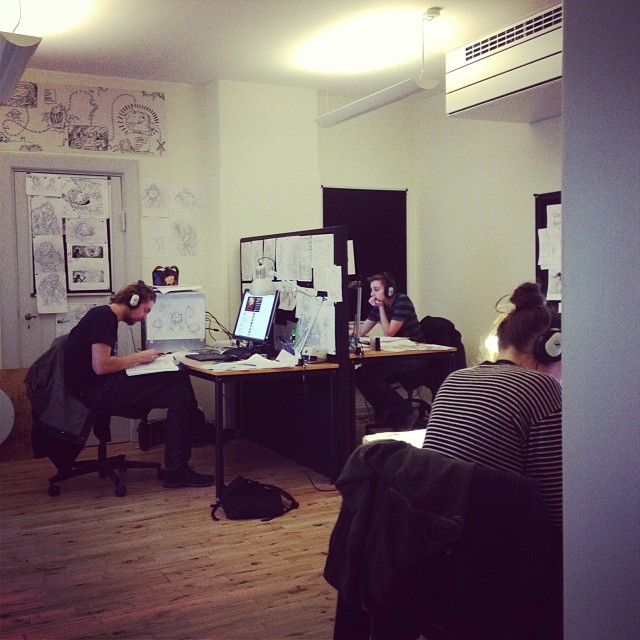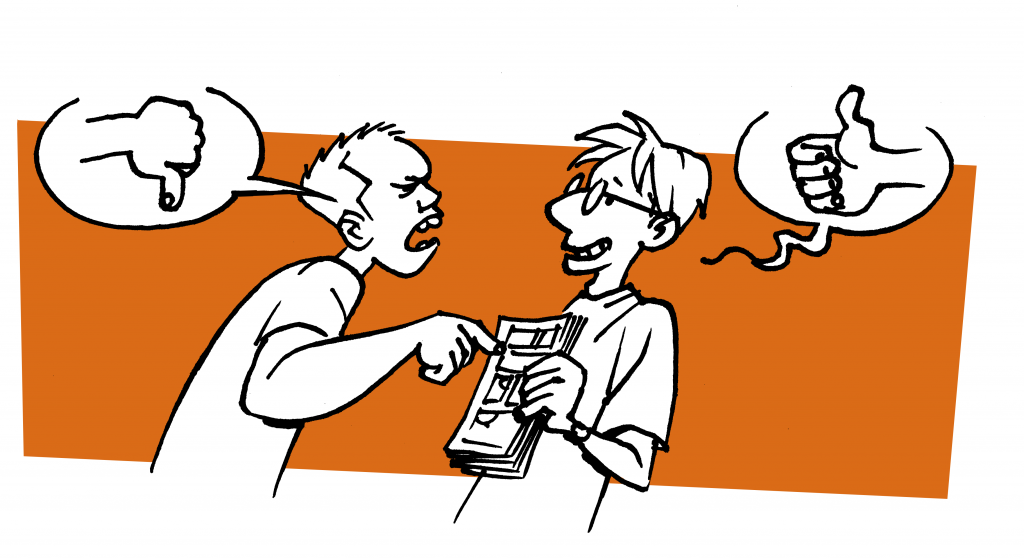Kody Chamberlain spends most of his time creating comic books and graphic novels, but also works in film, animation, video games, and television. Credits include DC Comics, HarperCollins, IDW Publishing, Image Comics, LucasArts, Marvel Comics, MTV, MTV Comics, Mulholland Books, Sony Pictures, 12 Gauge Comics, Universal Pictures, and Warner Bros. In addition to his work in entertainment, Kody also an inspirational keynote speaker and consultant on the subject of creativity. Credits include CTN Animation Expo, HOW Design Live, INNOV8, Modbook, Macworld, iFest, Wizard World Comic Con, as well as AdFed groups and major universities throughout the United States.
You can find out more about Kody at his website: http://kodychamberlain.com.
His latest book SWEETS: A New Orleans Crime Story:
Print edition: http://tinyurl.com/amazonsweets
Digital edition: http://tinyurl.com/digitalsweets
As high school was wrapping up, I had no plan on what to do next. I was interested in a few different things but no real goals so I decided to go to college and figure it out along the way. I thought I might try engineering because I was doing very well in math so I signed up for an advanced math class that was part of the engineering program. I also signed up for a lot of the usual classes you have to take early in college including basic art classes. I was already doodling a bit here and there, so I thought the drawing classes would be fun.
I quickly realized that I hated the math class, and really enjoyed the drawing class. It was a dilemma because I was good at math and bad at drawing. I discovered graphic design somewhere along the way, thinking it might be a nice combination of the two and I picked it as my focus. After a few months in, I started hanging around with a few guys that were serious about comics and that’s what got me hooked.
I was also writing a bit, and thought it’d be fun to try getting into comics. I sucked for a lot of years but I was making slight improvements here and there, and slowly, things got better. I don’t recall ever having a big breakthrough where everything clicked and I made a big jump. I know that happens to artists sometimes, but for me it was a slow grind over many years. I was having a lot of fun and I knew if I kept pushing forward I’d eventually get to a professional level, so I stuck with it.
I started drawing around 1990 or 1991 and started sending out submissions around 1994. In 2002 and 2003 I started to get favorable replies from publishers and editors and I got my first paid work in 2004. Basically, it took me about 15 years of practice to get paid work.
What part of the process is the most challenging or frustrating to you?
The toughest part for me is letting go. I have to constantly remind myself to stop and move on to the next thing. I’ve talked with enough people to know that it’s a very common problem, and I think it’s one of the main reasons many aspiring creators never actually become professionals. I know plenty of people that have been talking about a project for years and claim to have something done on it, but I have yet to actually see anything from it. They’re stuck in the “loop” of reworking material and they never get out. I’m able to work past it, but I’m always a little grumpy when I have to let something go. In reality, if I were to keep reworking it I know I would kill it. Letting go is a daily struggle, but after an issue of a comic hits the shelf, I always feel good about the work. A little distance solves most problems.
If you could give one piece of advice to an aspiring comics creator, what would that be?
Stop sending out scripts, drawing sample pages, and mailing out submissions. Make a comic. You don’t need a team or a publisher, just make it. Write it, create some artwork, letter it, and then put it out. Then do it again. Even if you don’t end up doing every job when you get into the industry, you’ll have a detailed understanding of the process, and that’s an asset. You don’t need permission from anyone to make a comic, and you don’t need much money. The cost of making comics versus film, animation, etc is incredibly low. Once you’ve made a comic you are now a comic book creator, not an aspiring comic creator. You’ll find the industry treats you differently.


